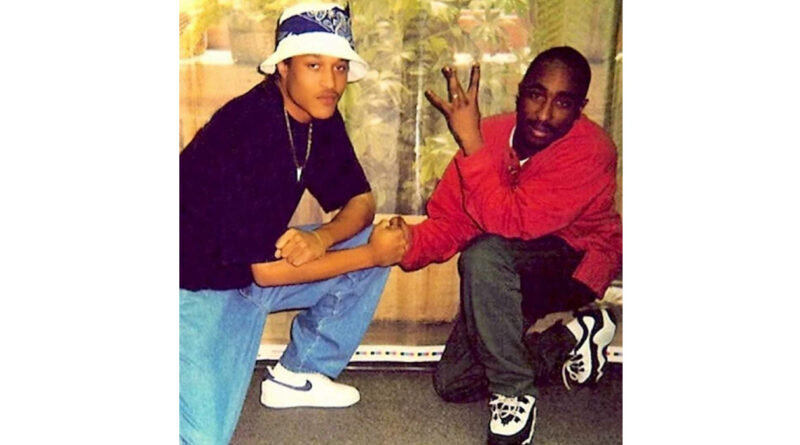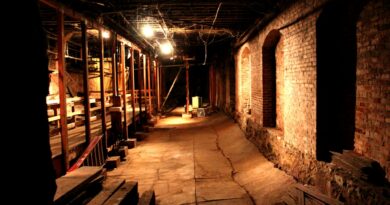The Outlawz Rap Group Member Yaki Kadafi Murder in East Orange New Jersey
Yafeu Akiyele Fula was born on October 9, 1977, in Montclair, New Jersey, to activists deeply rooted in the civil-rights movement. His mother, Yaasmyn Fula, was a leader within the Black Panther Party, and his father, Sekou Odinga, was a fellow Panther who later became a political prisoner. From infancy, Yafeu was immersed in an environment of community organizing and radical thought. After his parents faced legal persecution, Yaasmyn raised him single-handedly, instilling in him both pride in his African heritage and a fierce sense of justice. Extended family members, including his great-grandmother Delia Harrison Martin—a pioneering human-rights advocate—further shaped his awareness of social struggle from an early age.
Entry into Hip-Hop and the Outlawz
Yafeu’s teenage years coincided with the rise of hip-hop as a vehicle for political and personal expression. In 1995, he caught the attention of Tupac Shakur, who was expanding his circle of protégés. Under the evolving name Dramacydal (soon to become the Outlaw Immortalz, then simply the Outlawz), Yafeu adopted the stage name “Yaki Kadafi,” drawing from the controversial Libyan leader to signal strength and rebellion. On Tupac’s seminal albums, his verses appeared alongside tracks like “Me Against the World” and “All Eyez on Me.” He delivered gritty, impassioned lines on “Hit ’Em Up,” Tupac’s notorious diss track, and on deep cuts that blended street realism with open critiques of systemic injustice.
Bond with Tupac Shakur
Beyond their musical alliance, Yafeu and Tupac shared a god-brother relationship endorsed by their mothers’ friendship in the Black Panthers. After the 1995 Times Square shooting that left Tupac hospitalized, Yafeu emerged as one of the few loyal confidants. Their bond deepened as Tupac navigated rivalries with East Coast rappers and conflicts within the industry. Yafeu was among the first to visit Tupac upon his release from prison in late 1995, and he stood by him through the storm of feuds that culminated in the Las Vegas shooting on September 7, 1996.
Witness to Tupac’s Murder and Its Aftermath
On the night Tupac was fatally shot, Yafeu rode in the car behind Tupac when a white Cadillac opened fire at the MGM Grand’s valet lane. Though physically unharmed, he witnessed the chaos and later told investigators he could identify the shooter. His willingness to speak out deepened suspicions that he might hold dangerous knowledge—an irony, given his reputation as a peacemaker among the Outlawz.
Life in East Orange: Setting the Scene
By autumn 1996, Yafeu had returned to New Jersey, staying at a public housing complex in East Orange. Apartment 3B, on the third floor of a brick high-rise at 325 Mechanic Street, served as both a gathering spot for local friends and a sanctuary where he could regroup after months of touring and promotion. The building’s stairwell was poorly lit, with narrow concrete landings and a single fluorescent tube that flickered erratically. Residents often complained of safety concerns, and the stairwell camera—installed years later—would have shown the fateful events in grainy black-and-white.
The Fatal Night: November 10, 1996
In the early hours of November 10, 1996, Yafeu left his apartment to retrieve a forgotten jacket from the car his group member’s Napoleon cousin, Roddy Beale had driven. According to later testimony, both young men had been drinking, an unusual choice given the building’s strict no-alcohol policy. As they reached the third-floor landing, Roddy retrieved a small semi-automatic pistol from his jacket pocket. Eyewitnesses would later say they heard Yafeu tease Roddy about his gun handling. In a split second, the weapon discharged. Yafeu collapsed, struck by a single round to the right temple. Roddy, panicking, fled the scene. Resident calls to 911 described gunfire but yielded little detail until paramedics arrived approximately seven minutes later.
Crime Scene and Initial Investigation
First responders found Yafeu slumped against the stairwell wall, blood pooling beneath him. No shell casings lay on the floor, suggesting Roddy had pocketed them. Investigators secured the scene, sealing off the stairwell and questioning neighbors. The pistol was recovered days later in a nearby trash bin, wrapped in plastic. Ballistics matched it to the fatal round. Initial detectives speculated on possible gang connections or retaliation, given Yafeu’s high-profile status, but forensic evidence pointed to a single gunshot, trajectory consistent with an accidental discharge.
Arrests, Charges, and Prosecution
Two teenagers were detained early on: Roddy Beale and another minor who had been with him that night. Prosecutors argued that Roddy’s reckless handling of the firearm constituted involuntary manslaughter or second-degree murder under New Jersey law. At trial, Roddy’s defense maintained he never intended harm, emphasizing their intoxication and Yafeu’s unexpected turn when the weapon went off. In September 2000, the court accepted a plea to aggravated manslaughter. Roddy received a sentence of seven years with a 3½-year parole ineligibility period. The other defendant’s charges were dropped for lack of sufficient evidence.
Family Reactions and Ongoing Dispute
Yafeu’s mother, Yaasmyn, refused to accept the accidental ruling. She launched a personal campaign to reexamine police reports and witness statements, claiming inconsistencies in Roddy’s account. She alleged that Yafeu wore a bullet-resistant vest that night—information never substantiated in court—which would imply intent to kill rather than simple horseplay. Publicly, she criticized Napoleon (another Outlawz member and Roddy’s cousin) for allegedly urging Roddy to plead and for defending the accidental narrative. This rift underscored the wider discord within the Outlawz and the lingering mistrust bred by Tupac’s own unsolved murder.
Impact on the Outlawz Collective
Yafeu’s death came scarcely two months after Tupac’s. The Outlawz group, already grieving, fractured further. Some members withdrew from music, believing hip-hop had become too dangerous and fraught with real-world consequences. Others doubled down, using the tragedies as lyrical fuel in independent releases. E.D.I. Mean and Young Noble carried the group name forward, but they often cited Yafeu’s absence as the signal moment when their optimism died. The loss of two key figures in quick succession marked a turning point: the Outlawz moved from mainstream prominence to a loyal underground following.
Community Response in East Orange
News of Yafeu’s shooting shocked East Orange, a city accustomed to inner-city violence but unaccustomed to its most famous resident becoming a homicide victim. Community leaders organized a candlelight vigil near the housing complex. Murals depicting Yafeu in Outlawz regalia appeared on nearby walls. Yet tensions flared when rumors spread of gang involvement. The housing authority increased security patrols and installed metal detectors at building entrances. Local schools held assemblies on gun safety and conflict resolution, invoking Yafeu’s name as both warning and inspiration.
Forensic and Cultural Legacy
In crime-scene textbooks, the case became a study of accidental shootings among youth. Forensic professionals highlighted the stairwell’s confined space, which allowed the round to ricochet in a way that deviated from standard trajectories. In hip-hop scholarship, Yafeu’s demise is cited alongside Tupac’s as evidence of the genre’s entanglement with real-world violence. Documentaries on 1990s rap culture routinely feature his story as emblematic of a period when artistic rivalries and personal vendettas spilled into fatal reality.
Lasting Questions and Reflections
Decades later, debates linger. Did Roddy lose control of the weapon, or was there a moment of malice? Would better mental-health and substance-abuse resources have prevented the fatal meeting? How much did the specter of Tupac’s unsolved murder influence investigators and public perception? Yafeu’s own words—caught on interviews where he insisted on speaking his mind—resound differently now, as both testimony to youthful bravado and as a tragic prelude to his own death.
Remembering Yafeu “Yaki Kadafi” Fula
To fans and scholars, Yafeu remains more than a footnote in Tupac’s saga. His verses on enduring injustice, his testimony about violence, and the irony of his own violent end are woven into hip-hop’s complex tapestry. Annual memorials at Mechanic Street draw a small but devoted crowd of admirers who leave roses and handwritten lyrics. In studio archives, unreleased verses hint at the artistic heights he might have reached.
Discover more from City Towner
Subscribe to get the latest posts sent to your email.




